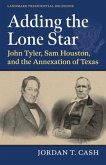William Scully, an Irishman who was a member of the lesser landed gentry, put his life's energy into the accumulation of high-quality, low-cost land. He carefully husbanded his inheritance, and in 1850 he traveled to the United States and purchased with personal savings more than 8,000 acres in central Illinois. In 1851 he acquired another 30,000 acres of swampy virgin land. He added to his holdings until, by the late nineteenth century, he had amassed almost 225,000 acres of fertile farm land in Illinois, Kansas, Missouri, and Nebraska, and had become an absentee, alien landlord to some 1,500 tenants. Meanwhile, Scully was involved in lawsuits and violent landlord-tenant confrontations over his Irish holdings, which exceeded 2,000 acres. In one skirmish with his tenants Scully was severely wounded and two of his party were killed. Public remonstrance against Scully's actions brought his name into notoriety throughout Great Britain. To handle his huge estate in America, Scully employed agents who were strategically located near his land. He inaugurated formal leasing procedures, insisting on elaborate controls: cash rentals, one-year leases, tenant-owned improvements, and soil conservation measures--all unusual for the time. Agitation against his practices as an absentee landlord in the 1880s and 1890s was widely covered in newspapers of the times. Because Scully used crop liens and court action to protect his rights, he was widely denounced for his disregard for his tenants' welfare. State legislation designed to limit acquisition and inheritance of land by aliens finally forced Scully to gain American citizenship in 1900, six years before his death. Homer Socolofsky's biography of Scully, the product of more than thirty years of research, provides a narrative and analysis of Scully's activities as an investor in both Ireland and the United States. It is based on numerous archival and newspaper sources never before analyzed in published works, including private business records of the Scully estate, as well as Socolofsky's interviews with Scully tenants. Socolofsky traces the acquisitions that led to Scully's vast wealth, stressing the landlord's strong will and determination and his unique methods of management. He looks closely at the charges against Scully on both sides of the Atlantic and describes Scully's court fights and other confrontations with his tenants. Finally, he follows the inheritance of Scully's multi-million dollar estate from Scully's death to the present. Scully's colorful career provides a unique opportunity for studying the economics and politics of land use in this country during the nineteenth century. This volume moves beyond biography to encompass an important segment of the business and agricultural history of the American Midwest.
Hinweis: Dieser Artikel kann nur an eine deutsche Lieferadresse ausgeliefert werden.
Hinweis: Dieser Artikel kann nur an eine deutsche Lieferadresse ausgeliefert werden.








